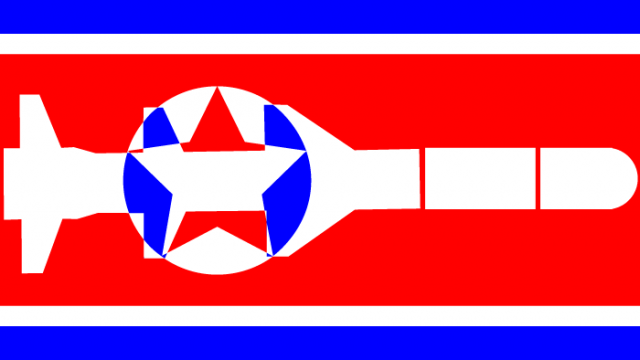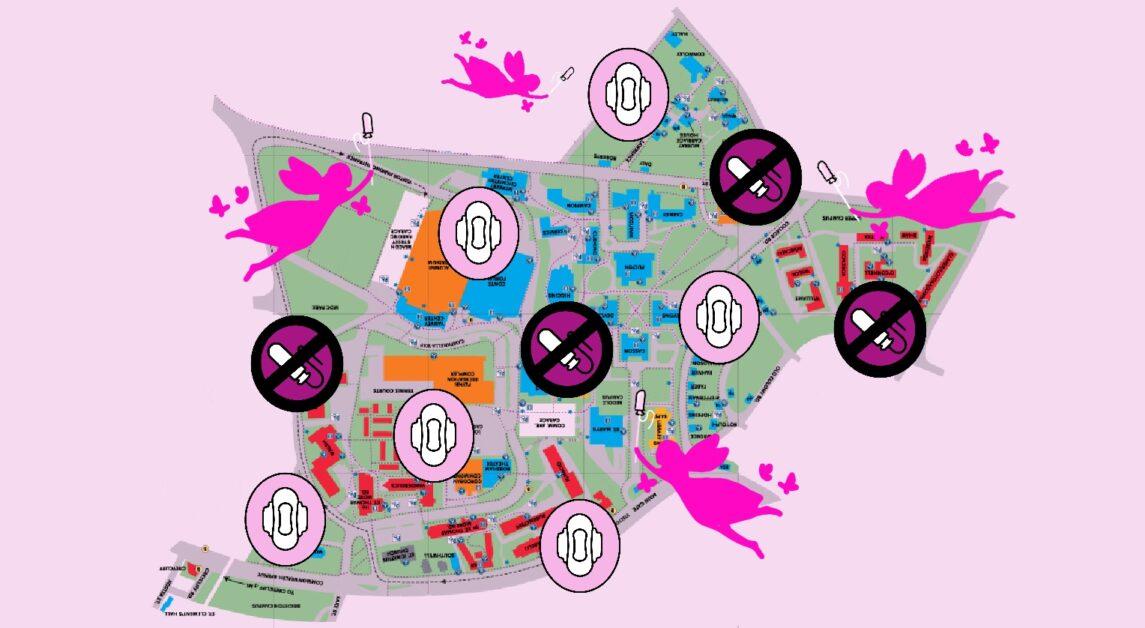What do you do when the dictator of the world’s most isolated country launches yet another ballistic missile in the hopes of some day being able to hit your shore with a nuclear warhead? Apparently, not much. Last Sunday, North Korea successfully test fired a new medium-to-long-range ballistic missile, its first test launch during the administration of President Donald Trump. In 2016, the country launched over twenty missile tests and two nuclear tests—an unprecedented number—in defiance of various United Nations resolutions. This isn’t okay, but in the anarchic world of international relations, a U.N. resolution here and there doesn’t mean much when you have China’s backing and a few nukes up your sleeve.
Ever since North Korea successfully conducted its first nuclear test in 2006, the number of options left to deal with the backwards country has decreased, and the United States’ leverage has declined. Kim Jong-un, Supreme Leader of the “Democratic” People’s Republic of Korea, is well aware of this shift. In fact, he believes that North Korea’s nuclear weapons program is the reason why he has yet to be toppled by the West. Sunday’s ballistic missile test will try the new American administration, which must decide how it’ll respond to the North Korean threat and defend its allies, as well as its credibility.
North Korea’s aggression is a direct menace to the U.S.’ key allies in the region, most notably Japan and South Korea. The missile launch coincided with Japanese Prime Minister Shinzo Abe’s visit to Trump’s Mar-a-Lago estate in Palm Beach, and was likely a timely threat to Abe and a challenge to the Trump administration.
Abe called the test “absolutely intolerable,” while Trump simply stated that the U.S. was behind Japan 100 percent. Trump’s restraint in response to the missile test is somewhat uncharacteristic, and suggests that his administration may not yet have a solid strategy. Certainly, prudence in these matters is necessary, especially when dealing with a volatile North Korean dictator. The U.S., however, must develop an effective policy to curb North Korea’s nuclear weapons program—the sooner, the better.
North Korea has conducted five nuclear tests, which have all had increasing yields. The last explosion had a yield between 20 and 30 kilotons. This is frightening, considering the bombs dropped on Hiroshima and Nagasaki yielded 15 and 20 kilotons respectively. Moreover, with every new missile test, North Korea is not only making a statement to its enemies, but also improving on its ballistic missile technology. On Jan. 1, 2017, Kim stated that the country had “entered the final stage of preparation for the test launch of an intercontinental ballistic missile.” Still, it remains unclear how close North Korea actually is to testing such a missile that could reach the U.S.
Concerningly, the missile which North Korea tested Sunday appears to have used a new solid-fuel propelled-engine that allows for faster launches with greater power and range. Unlike the conventional liquid-fuel missiles tested previously, the new rocket type can be launched at short notice and is harder to detect by satellite surveillance. The longer the U.S. waits to act, the more progress North Korea’s nuclear program will make, and the harder it will be to deal with threats in the future.
Despite his rhetoric, Kim Jong-un probably values his power too much to actually launch a nuclear attack on the U.S., which would surely result in his destruction. Still, the threat is real. So what can we do?
It’s too risky to stick to the status quo. Shows of military force seem to just egg on the North Koreans to even more aggressively develop their nuclear weapons program. Our increased military presence in the region further convinces Kim that the U.S. and its allies are bent on toppling him, and that nuclear capability is the only thing keeping him in power. Sanctions would be effective if they could cut off the sources of income for North Korea’s nuclear weapons program. Unfortunately, the Kim regime has proved more than willing to take money away from a starving populace to generate funding.
China holds the key to solving the North Korean problem. Since the Korean War, even before North Korea had nuclear weapons, its regime has gone largely unchallenged thanks to China’s support. Territorial, economic, and geopolitical concerns have turned China into the Kim dynasty’s lifeline. China is wary that if the North Korean regime collapses, impoverished Korean refugees will likely flood across the Yalu River into China, and American troops will station themselves on its border.
Although it publicly condemns the missile tests, China has continually rejected the notion that it could do more to deter North Korea’s aggressive nuclear program. This assertion is almost certainly false. Over 90 percent of North Korea’s trade is done with China, and China has consistently provided the majority of North Korea’s food, arms, and energy. Without China’s support, North Korea would wither away. But China doesn’t really see a reason in curbing North Korea’s nuclear weapons program, as long as the regime is stable and doesn’t draw China into a war. After all, North Korea provides China a buffer to U.S.-influenced powers in the region.
The U.S. and its allies must effectively convince China that curbing Kim’s regime is actually in China’s interest, rather than against it. The U.S. must shift its tone to persuade China that it is not trying to undermine its stability, but rather, bolster it. China’s President Xi Jinping has stated that the country’s priorities are “no war, no instability, no nukes.”
The U.S. should emphasize how Kim’s regime is causing Japan and South Korea to consider developing their own nuclear weapons and heightening the possibility of war. We must not antagonize China, but rather play on its desire to take on a more important role in the international order by engaging in talks. By offering solid reassurances, perhaps the U.S. can one day even persuade China to support the reunification of Korea. If China doesn’t willingly decide that it is time to finally whip its “unruly communist little brother” into shape, then the U.S. and its allies may be forced to consider more compelling strategies.
Featured Image by Zoe Fanning / Heights Editor













